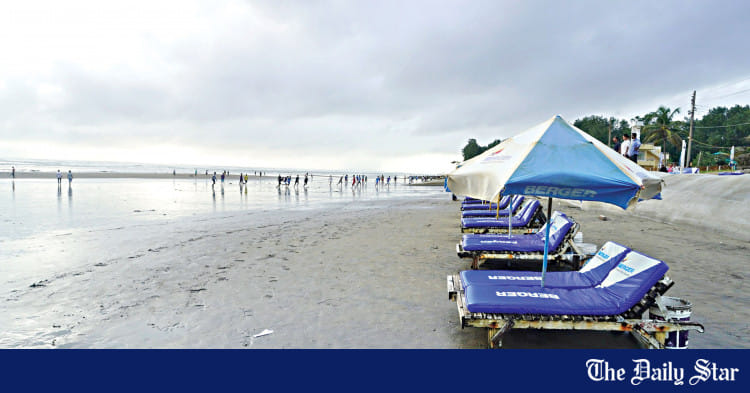Saif
Senior Member
- Joined
- Jan 24, 2024
- Messages
- 17,104
- Likes
- 8,163
- Nation

- Residence

- Axis Group


Government plans to establish Tourism University: Frauk Khan
Civil Aviation and Tourism Minister M Faruk Khan on Sunday said the government plans to establish a dedicated tourism university to create expert manpower for the country's tourism industry. He hoped that all stakeholders of the tourism sector would come forward sincerely for the successful implem
Government plans to establish Tourism University: Frauk Khan
Published :
Jul 14, 2024 22:34
Updated :
Jul 14, 2024 22:34

Civil Aviation and Tourism Minister M Faruk Khan on Sunday said the government plans to establish a dedicated tourism university to create expert manpower for the country's tourism industry.
He hoped that all stakeholders of the tourism sector would come forward sincerely for the successful implementation of the initiative to establish a tourism university.
The minister was speaking as the chief guest of Association of Travel Agents of Bangladesh (ATAB)-Tourism Training Institute's certificate awarding ceremony among the trainees in the capital, BSS reported citing a press release.
In his speech, Khan also put emphasis on the language expertise of the trainees and said the tourism sector's apprentices have to develop in such a way that they become fit to work anywhere in the world.
Pointing out that the travel agents are playing an vital role in world connectivity, the minister said travel agents have to deliver services with integrity.
The agents also need to be aware to check any cheating attempt on tourists as well as travellers must not face any trouble in taking a trip abroad, he added.
He said the government will provide full policy support towards the country's tourism sector and hope that travel agents will perform their duties properly.
Noting that online travel agencies are often charged for various irregularities and complaints, the minister said everyone must follow the rules, otherwise legal action will be taken.
Bangladesh Parjatan Corporation (BPC)Chairman AKM Aftab Hossain Pramanik and ATAB President Abdus Salam Aref spoke, among others, in the function while ATAB Secretary General Asfia Jannat Saleh moderated it.
Published :
Jul 14, 2024 22:34
Updated :
Jul 14, 2024 22:34
Civil Aviation and Tourism Minister M Faruk Khan on Sunday said the government plans to establish a dedicated tourism university to create expert manpower for the country's tourism industry.
He hoped that all stakeholders of the tourism sector would come forward sincerely for the successful implementation of the initiative to establish a tourism university.
The minister was speaking as the chief guest of Association of Travel Agents of Bangladesh (ATAB)-Tourism Training Institute's certificate awarding ceremony among the trainees in the capital, BSS reported citing a press release.
In his speech, Khan also put emphasis on the language expertise of the trainees and said the tourism sector's apprentices have to develop in such a way that they become fit to work anywhere in the world.
Pointing out that the travel agents are playing an vital role in world connectivity, the minister said travel agents have to deliver services with integrity.
The agents also need to be aware to check any cheating attempt on tourists as well as travellers must not face any trouble in taking a trip abroad, he added.
He said the government will provide full policy support towards the country's tourism sector and hope that travel agents will perform their duties properly.
Noting that online travel agencies are often charged for various irregularities and complaints, the minister said everyone must follow the rules, otherwise legal action will be taken.
Bangladesh Parjatan Corporation (BPC)Chairman AKM Aftab Hossain Pramanik and ATAB President Abdus Salam Aref spoke, among others, in the function while ATAB Secretary General Asfia Jannat Saleh moderated it.









































